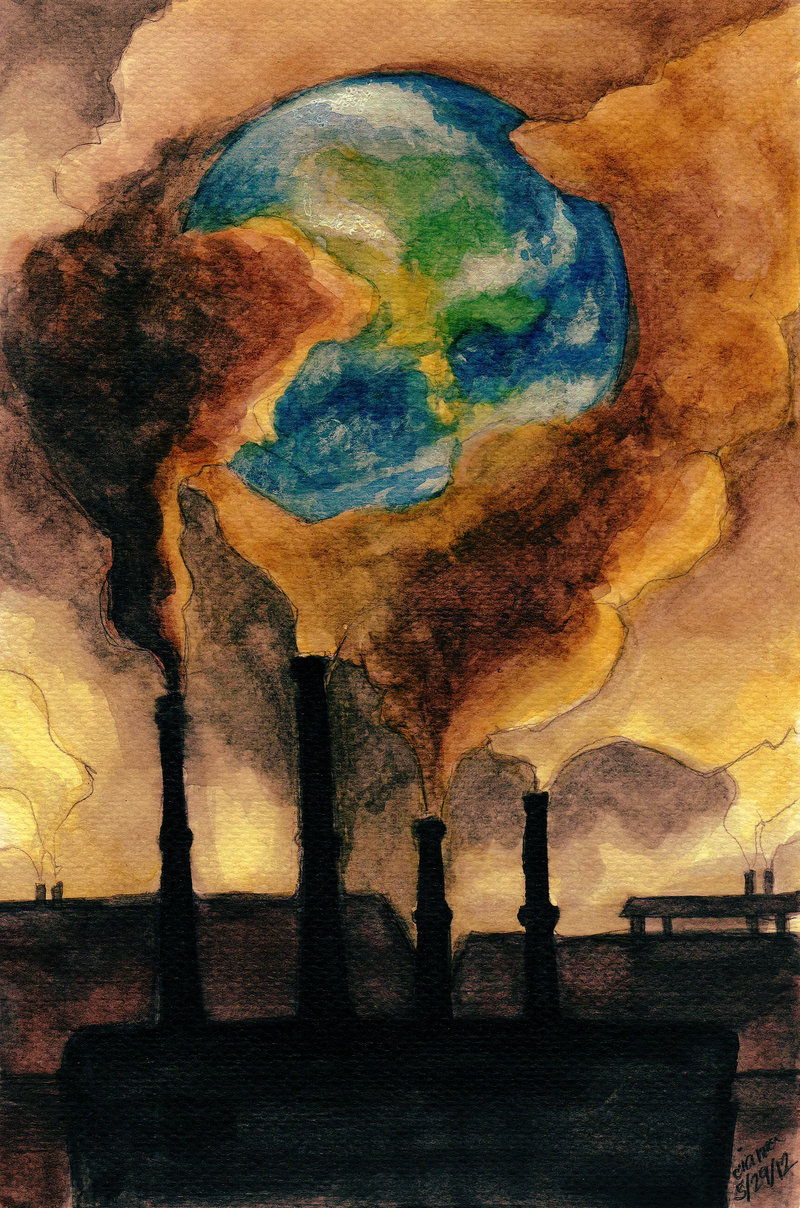 (Illustration found at National Geographic).
(Illustration found at National Geographic).
A new climate report that’s more than a little ominous — the Guardian this afternoon:
Tropical forests are taking up less carbon dioxide from the air, reducing their ability to act as “carbon sinks” and bringing closer the prospect of accelerating climate breakdown.
The Amazon could turn into a source of carbon in the atmosphere, instead of one of the biggest absorbers of the gas, as soon as the next decade, owing to the damage caused by loggers and farming interests and the impacts of the climate crisis, new research has found.
If that happens, climate breakdown is likely to become much more severe in its impacts, and the world will have to cut down much faster on carbon-producing activities to counteract the loss of the carbon sinks.
“We’ve found that one of the most worrying impacts of climate change has already begun,” said Simon Lewis, professor in the school of geography at Leeds University, one of the senior authors of the research.
“This is decades ahead of even the most pessimistic climate models.”
For the last three decades, the amount of carbon absorbed by the world’s intact tropical forests has fallen, according to the study from nearly 100 scientific institutions.
They are now taking up a third less carbon than they did in the 1990s, owing to the impacts of higher temperatures, droughts and deforestation.
That downward trend is likely to continue, as forests come under increasing threat from climate change and exploitation.
The typical tropical forest may become a carbon source by the 2060s, according to Lewis.
“Humans have been lucky so far, as tropical forests are mopping up lots of our pollution, but they can’t keep doing that indefinitely,” he told the Guardian.
“We need to curb fossil fuel emissions before the global carbon cycle starts working against us. The time for action is now.”
The study was published today in the journal Nature.
The problem we face, however, isn’t just our deteriorating environment, but the T-Rump and his toadies — the New York Times on Monday:
An official at the Interior Department embarked on a campaign that has inserted misleading language about climate change — including debunked claims that increased carbon dioxide in the atmosphere is beneficial — into the agency’s scientific reports, according to documents reviewed by The New York Times.
The misleading language appears in at least nine reports, including environmental studies and impact statements on major watersheds in the American West that could be used to justify allocating increasingly scarce water to farmers at the expense of wildlife conservation and fisheries.
The effort was led by Indur M. Goklany, a longtime Interior Department employee who, in 2017 near the start of the Trump administration, was promoted to the office of the deputy secretary with responsibility for reviewing the agency’s climate policies.
The Interior Department’s scientific work is the basis for critical decisions about water and mineral rights affecting millions of Americans and hundreds of millions of acres of land.
…
He also instructed department scientists to add that rising carbon dioxide — the main force driving global warming — is beneficial because it “may increase plant water use efficiency” and “lengthen the agricultural growing season.”
Both assertions misrepresent the scientific consensus that, overall, climate change will result in severe disruptions to global agriculture and significant reductions in crop yields.
Samuel Myers, a principal research scientist at Harvard University’s Center for the Environment who has studied the effects of climate change on nutrition, said the language “takes very specific and isolated pieces of science, and tries to expand it in an extraordinarily misleading fashion.”
And onward…
 (Illustration found here).
(Illustration found here).